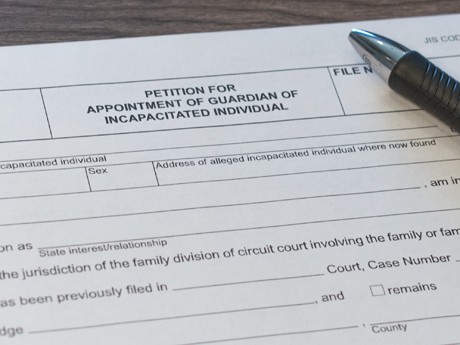Guardianship Attorney in Michigan
In Michigan, a guardian is defined as “a person who has qualified as a guardian of a minor or a legally incapacitated individual under a parental or spousal nomination or a court appointment and includes a limited guardian. The court uses the standard of whether or not the guardianship serves the welfare of the minor. The typical situations where a minor might become subject of a guardianship is when the minor’s parents are unable to provide the necessary care or because of death or incapacitation.
Guardianship in Michigan can be limited, temporary or full, and the arrangement is subject to review by the court. The guardian has authority over a minor until that guardian is removed or dies. The guardianship is also removed if the minor child dies, marries, becomes adopted or reaches the age of majority.
For legal issues involving guardianships such as legal disputes or difficulty obtaining it, it’s important to speak with an experienced estate planning and guardianship attorney immediatley.
Types of Guardianship
Temporary Guardianship – Michigan courts may appoint a temporary guardian during the proceeding for permanent guardianship or if a permanent guardian is not performing their job, a temporary guardian will be appointed during the investigation into the permanent guardian. A temporary guardianship can only last up to six months.
Full Guardianship – Full guardianship may be granted by will as long as the minor’s spouse or parent were the guardian at death, but if the minor is 14 or older, they may object to the guardianship. Full guardianship may also be granted a court by appointment. This can occurs if all parental rights have been terminated or suspended by a court order or if the parent permits a minor to live with another person, and a number of other situations
Any person who has an interest in the welfare of a minor, including the minor if 14 years of age, may file a petition with the court for appointment of a guardian for a minor.
The appointed guardian must be approved by the court, which means the court will inquire into certain financial, educational and understanding of duties of the potential guardian.
Limited Guardianship
In Michigan, a custodial parent may petition for a limited guardianship if the parent or parents consent to the appointment of a guardian, consent to the suspension of their parenting rights and if the court approves of the placement plan set forth to the court. The plan must include why the parents are requesting a limited guardianship, that their will still be parenting time, the length of the proposed limited guardianship and who will provide financial support to the child. This plan can be modified by the court or the parties involved.
Guardianship of Incapacitated Person
 An incapacitated person may have a guardian appointed by a Michigan court or may be addressed in a will. Here’s an example of the legal document used for the appointment of guardian for an incapacitated individual.
An incapacitated person may have a guardian appointed by a Michigan court or may be addressed in a will. Here’s an example of the legal document used for the appointment of guardian for an incapacitated individual.
– Guardianship by will is only possible if the parents or spouse was serving as guardian prior to their death.
– Guardianship by the court is granted if the court is satisfied by clear and convincing evidence that the person is incapacitated and that the appointment is necessary to provide continued care and supervision to that person.
Any competent person may be appointed the guardian of a legally incapacitated individual. If there is no designated person to serve as guardian, the court will determine the guardian by first looking to a spouse, an adult child, a parent or a relative, and if none of these apply, the court will appoint a non-family member, including a “professional guardian”. A professional guardian provides guardianship as their job, and is paid a fee.
Powers of a Guardian in Michigan
A full-time guardian has the same exact power as a custodial parent except the guardian is not obligated to support the child with their own money. The guardian’s powers are “care, custody and control” of the minor child. This means the guardian decides where the child will live, which can be inside or outside of the state. Guardians also have the power to make medical decisions for the minor, and decisions regarding other professional care and treatment.
A limited guardian has the same powers except they cannot consent to the adoption of the child.
Northville Guardianship Attorneys
The Northville based law firm of Kelly & Kelly P.C. provides professional and experienced estate planning expertise to clients throughout Southeast Michigan. This includes helping with the appointment of guardianship and legal disputes involving this process. If you need to speak with one of our attorneys, contact us for a confidential consultation today.




